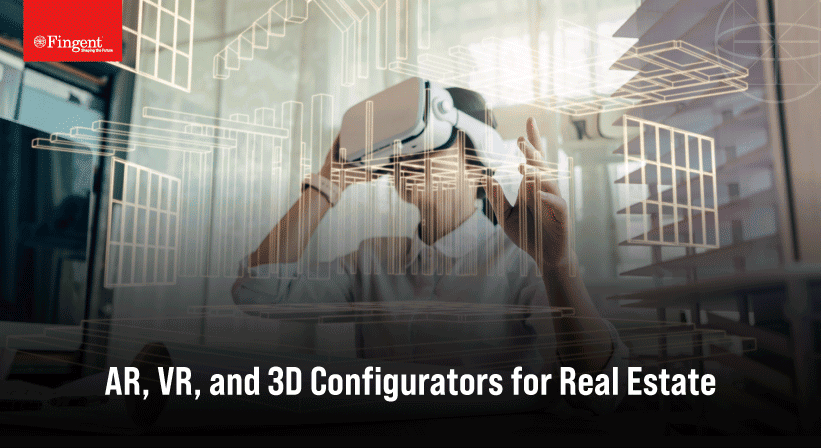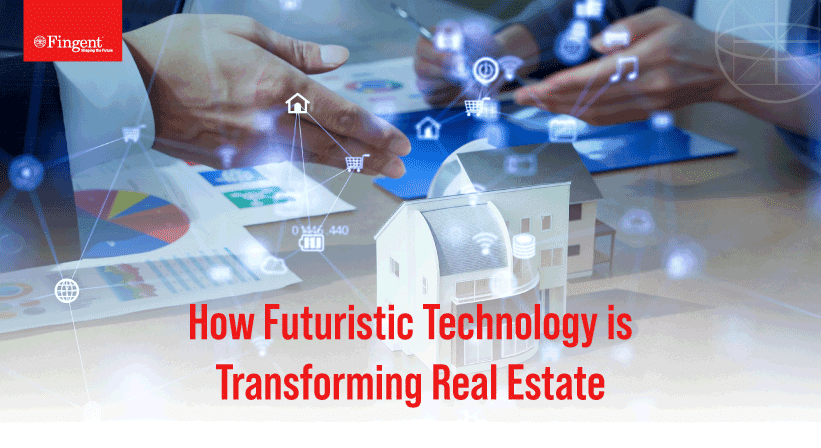How Predictive Analytics is Changing Commercial Real Estate
Adoption of Predictive Analytics
The Commercial Real Estate (CRE) industry is growing. New business models and competition, extensive use of technology, and changing tenant and investor expectations are redefining the face of this industry. Each year brings new technologies that alter the way agents approach their work. As investors are ready to change their business models with a tech-enabled ecosystem, CRE companies and agents will have to adapt to the new demands and technology trends. The market will remain wide open only for those who are ready to accept the change and adapt to new technologies.
Get to know how smart home technology impacts real estate.
This video is made using InVideo.io
Based on the industry market research report on the state of the commercial real estate industry in the US, there are almost 1.3 million properties with an average sales volume of $55 billion. Over the past five years, the commercial real estate industry in the US has grown by 2.6% to reach revenue of $1 trillion in 2019. Moreover, it is estimated that the CRE industry expansion is expected to continue over the next five years.
“The CRE property values (specifically NNN properties) are unique in that the pricing is not driven strictly by the underlying real estate, but also by the lease terms and a single tenant’s credit rating”, says Camille Renshaw, co-founder, and CEO, B+E. This shows the relevance of analytics in tenant/property data.
Related Read: How Real Estate Technology Helps Predict Property Prices
Predictive Analytics Occupy a Pivotal Role in CRE
No investor cares about what the property meant in the past. They are keen to know about the future of the property or how its potential value will escalate in times to come. Here comes the significance of PREDICTIVE ANALYTICS, which uses past and present big data to make reliable, proof-based predictions about the future development of a property.
CRE is an industry sector that contains an abundance of data. Over the past years, analytics are slowly taking up its role among numerous listing sites. Its chief role is to provide both buyers and sellers more context about the property and its qualities. However, analytics that really benefits CRE agents is still a rare thing to find. This is where predictive analytics comes into place.
Predictive analytics tracks consumer (basically buyer/seller) behavior to understand the conditions in which they are most likely to buy or sell. This helps an agent to better utilize their time and resources, which in turn maximize the overall sales. It is expected that over the next few years the adoption of predictive analytics in the real estate industry will accelerate. Besides, studies also show that predictive analytics is one among the many real estate technology trends to follow in 2019.
CRE companies/agents can achieve clear and practical insights for different strategic actions that they must adopt by combining data from different sources and advanced analytics technologies. This includes predictions like analyzing the tenant’s benefits due to flexible leases, customer and traffic information for a retail center or staff usage information for office space, etc.
Features like heatmap analysis, property rental calculators, projected revenue charts, return during lease analysis are a few examples of predictive analytics that agents generally use to showcase how a property will perform in the future and its possible return on investment.
Related Reading: Check out how Fingent provided integrated Prop-Tech Solution for real estate brokers.
How Predictive Analytics Benefits the CRE Industry
Predictive analysis allows an agent to suggest the perfect property that matches their investor preferences, expectations, and goals. This saves time and risk by providing the investor with a reliable return on investment metrics based on past and present data as well as the future expected trends of their investment.
It also allows the agent not to have any specific financial background, as the analytics platform does its job to suggest a property that guarantees to provide its investors with positive cash flow and high return on investment.
It is possible to carve analytics, which can even identify the ability and education levels of possible agents from a list and suggest it to a CRE company based on use cases.
Many AI-based applications help its agents or even investors to get a detailed and personalized report by simply providing basic information like area, the fund available, risk level, expected CAP rate, etc.
In addition, such tools can even be customized for agents that will give them answers to queries like:
- Is this the right time to invest?
- What would be my ROI – maybe in the next five years?
- Neighborhood status and track record?
- How much is my existing portfolio worth?
Such predictive recommendation engines have proven to foster deeper engagement and increase ROI. For instance, Amazon’s predictive recommendations had a success rate as high as 60% in some cases.
Related Reading: The Impact Of Big Data Analytics and How it is Changing the Real Estate Industry
As a CRE Company, What Must We Do?
Developing an enterprise-wide strategy and supporting it with a sound technology core has turned out to be important for a commercial real estate company. This must be supported by data gathering and analytical techniques. According to the CIO surveys performed by different agencies, only one-fourth of organizations globally across industries have currently in place an enterprise-wide digital vision and strategy.
A solid technology strategy that is spread across the industry stands as the first step towards effective technology deployment and integration. More efficient utilization of IT budgets and resources also needs to be considered. This will include evaluation of how data capturing is performed, use of predictive analytics, advanced tracking and reporting management AI tools. A well planned and phased deployment of technology will likely yield amazing results than waiting for your turn and jumping into the development and implementation process.
However, there are a few things that require consideration before starting to work with a PropTech company. A CRE company must admit the fact that, when starting off working with a PropTech firm, they must not consider them just as vendors of a product or service, as this can very well limit the range of benefits that the company can achieve.
Instead, try partnering with them on potential innovations. Identifying a single point of contact to take up conversations with PropTech and a coordinated approach supported by guidelines to evaluate the features developed must also be taken into consideration. In addition, make sure that the size, scale, maturity, level of innovation, and relevance to existing business is conveyed properly to the PropTech company.
Commercial real estate technologies are relatively new and most of the PropTech companies are only beginners in the CRE Industry. They tend to make decisions quickly compared to CRE companies, which can end up delivering wrong results or create anomalies in the process flow. A shared understanding must be developed by the partnering company to allow successful coexistence.
Related Read: Top Technology Aids To Accelerate Real Estate Growth
Predictive analytics is transforming commercial real estate by enabling stakeholders to make data-driven decisions, identify risks and opportunities, and optimize operations. To leverage the full potential of predictive analytics, commercial real estate firms need a reliable partner like a custom software development company. Such a company can provide customized solutions that integrate predictive analytics tools with existing systems, unlocking actionable insights that can drive business success.
Stay up to date on what's new

Recommended Posts

29 Aug 2024 Real Estate
How Does The NAR Settlement Reshape The U.S. Housing Market?
August 17, 2024, saw major changes in the real estate policies and practices with the NAR settlement. How will these major regulatory changes govern the agent commission structure? Do these……

08 Jul 2023 B2B
AR, VR, and 3D Configurators for Real Estate
The implementation and development of immersive digital technologies such as Artificial Intelligence, Augmented Reality, Virtual Reality, Machine Learning, and 3D Configurators have drastically changed the way the world works. These……

23 Feb 2023 Real Estate B2B
Futuristic Technologies Transforming The Real Estate Industry!
According to a 2020 report, 58% of real estate brokers have a clearly defined digital strategy, a figure that represents a 6% increase from the two previous years and thus……

27 Jun 2022 Real Estate B2B
Why Is PropTech The Need Of The Hour For Real Estate Companies?
Call it the innovation driver or the disruptive power, PropTech – the intersection of property and technology – has massively influenced real estate in recent years. More than two-thirds of……
Featured Blogs
Stay up to date on
what's new



















































